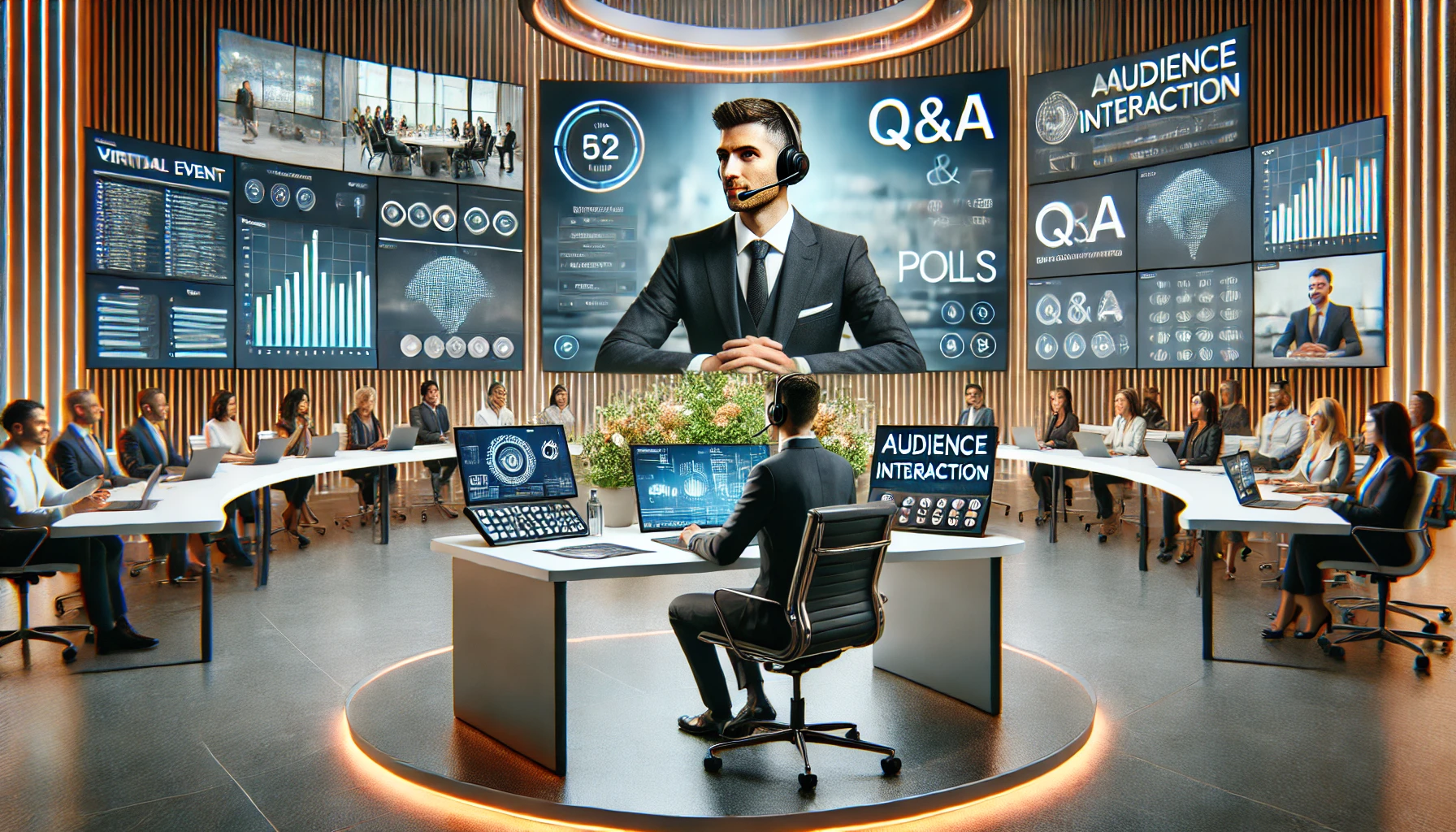How to Be a Successful Virtual Events Moderator

In today’s digital era, virtual events have become a cornerstone of communication and collaboration across industries. At the heart of every successful virtual event is a skilled moderator, orchestrating the event’s flow and ensuring an engaging experience for all participants. This article explores the critical role of virtual event moderators, their responsibilities, and strategies to excel in this pivotal role.
What Is a Virtual Event Moderator?
A virtual events moderator acts as the linchpin of online gatherings, ensuring seamless interaction between presenters and participants. Whether managing a global conference, a webinar, or an online training session, moderators maintain the event’s rhythm, resolve technical hiccups, and create a professional and welcoming environment.
Key responsibilities include:
- Facilitating Discussions: Moderators introduce speakers, summarize key points, and ensure transitions are smooth. For instance, during a global health webinar, a moderator might summarize complex medical jargon into digestible insights for a diverse audience.
- Technical Oversight: Moderators troubleshoot platform issues. Imagine a scenario where a keynote speaker’s microphone cuts off mid-presentation—an effective moderator quickly intervenes, notifying tech support and keeping the audience engaged while the issue is resolved.
- Monitoring Engagement: They oversee Q&A sessions, chats, and polls, making sure audience questions are acknowledged and addressed. During a virtual product launch, for example, moderators could highlight trending audience queries to enrich the discussion.
To perform these tasks effectively, moderators need exceptional communication skills, adaptability, and a strong grasp of the event’s platform and content. Their role becomes even more critical in large-scale events, where engagement and coordination challenges often arise (Smith, 2022).
How to Become an Effective Virtual Events Moderator
1. Prepare Thoroughly and Understand Your Audience
Preparation is the foundation of effective moderation. Moderators must:
- Familiarize themselves with the event agenda, key objectives, and the technology being used.
- Conduct a trial run with the event platform to identify potential issues.
For example, if moderating a virtual conference on artificial intelligence for professionals, a moderator must know the audience’s level of technical expertise. This ensures they can introduce topics with clarity and ask relevant questions. Additionally, preparing a contingency plan for common challenges—like internet outages—ensures a smooth event.
Tailoring the tone and language to suit the audience is equally important. During a virtual training session for teenagers, a moderator might adopt an approachable and energetic style, using humor or relatable analogies to maintain interest. Conversely, a professional business seminar demands a more formal and concise approach. Aligning with audience expectations fosters trust and engagement (Carlson, 2021).
2. Master the Art of Active Listening
Active listening is essential for responding thoughtfully and steering discussions effectively. It’s not just about hearing the words but understanding the speaker’s intent and context.
For example, during a panel discussion on climate change, a moderator who listens attentively might identify a subtle disagreement between panelists. By asking follow-up questions like, “Dr. Green, could you elaborate on how your perspective differs from Dr. Blue’s regarding carbon offset strategies?”, the moderator fosters deeper dialogue while maintaining a respectful tone.
Active listening also enables moderators to pick up on unspoken concerns. In a Q&A session, if several participants ask repetitive or vague questions, it might indicate confusion. A proactive moderator could summarize and clarify key points, ensuring participants leave with a clear understanding (Patton, 2020).
3. Engage Participants with Clear Communication and Interaction
Audience engagement can make or break a virtual event. Moderators should use concise language and clearly outline interaction norms at the beginning. For example, they might say:
“Feel free to drop your questions in the Q&A section. We’ll address them after each session, and don’t forget to participate in our live poll coming up soon!”
Interactive tools such as polls, chat features, and breakout rooms enhance engagement. During an online leadership summit, a moderator might pose a thought-provoking poll, like, “What’s the biggest challenge you face as a leader in remote settings?” This not only keeps participants involved but also generates valuable insights for the discussion.
Incorporating humor and storytelling can also create a welcoming atmosphere. For instance, a moderator opening a financial literacy webinar with a light anecdote about their first budgeting mishap might put participants at ease and encourage more interaction (White, 2019).
4. Maintain a Calm and Professional Demeanor Under Pressure
Virtual events are fraught with unpredictable challenges, from technical glitches to disruptive participants. A composed moderator ensures these issues don’t derail the event.
Imagine a scenario where a keynote speaker accidentally drops off the call. A prepared moderator might step in, saying:
“It seems Dr. Bright has temporarily lost connection. While we wait, let’s quickly review some of the exciting highlights from earlier sessions.”
Rehearsing potential scenarios builds confidence to handle such situations. Diplomacy is equally important. If a participant posts an off-topic or inappropriate comment, the moderator might respond by gently steering the conversation back, such as:
“Thank you for sharing, but let’s focus on our current topic of discussion to ensure everyone benefits.”
This calm, professional approach reassures attendees and preserves the event’s credibility, even amidst disruptions (Taylor, 2022).
Conclusion
Becoming a successful virtual events moderator requires a blend of preparation, adaptability, and interpersonal skills. Whether it’s summarizing complex discussions, engaging a diverse audience, or resolving unforeseen challenges, moderators shape the overall experience for participants and presenters alike.
By understanding the audience, actively listening, encouraging interaction, and staying composed under pressure, moderators can ensure that virtual events run smoothly, leaving a lasting impression on all involved. The role may be challenging, but for those who master it, the rewards are significant—both in terms of personal growth and professional impact.
References
- Smith, J. (2022). The role of a virtual events moderator: Skills and strategies for success. Virtual Event Management Journal, 4(1), pp. 12-18.
- Carlson, J. (2021). Engaging audiences in virtual events: Best practices for moderators. Virtual Event Journal, 3(4), pp. 45-57.
- Patton, L. (2020). The art of active listening: A guide for moderators. Journal of Communication Studies, 12(2), pp. 120-135.
- Taylor, M. (2022). Professionalism under pressure: Strategies for virtual event moderators. Online Engagement Review, 4(1), pp. 10-25.
- White, R. (2019). Interactive elements in virtual events: Enhancing engagement. Digital Conference Quarterly, 5(3), pp. 32-47.

